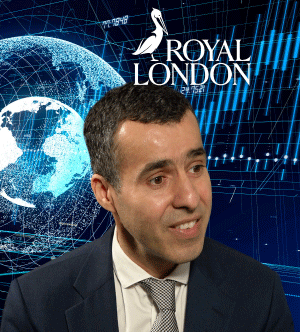16 expert investment tips for beginners
Taking your first steps into the investment world can appear overwhelming, so here are a few ideas to he…
6th April 2020 14:42
by Brean Horne from interactive investor
Taking your first steps into the investment world can appear overwhelming, so here are a few ideas to help you get started

In every issue of Moneywise, we speak to a fund manager at the helm of one of our First 50 Funds for Beginners and ask them to share their wisdom.
This month, we round up the top investment tips from over the years to help you get your investment journey on the right track.
1 Do your research
Richard Watts, fund manager, Old Mutual UK Mid Cap, Old Mutual
“Do your research and try to understand what you are buying.”
Noelle Cazalis, fund manager, High Quality Bond Fund, Rathbone

“Keep looking at the bigger picture of the underlying investments and how they interact with each other.
"It is also important to understand how much you can afford to lose and think about whether you should change your asset allocation.”
Terry Smith, chief executive, Fundsmith
“My advice would be to understand what you are investing in. If you have a scintilla of doubt about whether you understand it, you don’t. If you don’t, then opt for a low-cost index tracker fund.”
Anthony Cross, fund manager, Special Situations Fund, Liontrust
“They always say that past performance isn’t a guide to future performance and that is very true, but you need to look at managers’ long-term numbers and see how they have done during value periods, growth periods and financial crises.”
2 Invest in things you understand
Matthew Brett, fund manager, Japanese Fund, Baille Gifford
“I would encourage people to keep things simple and to be aware of the importance of understanding how they are managed. Have an eye on costs and be long term in your thinking.”
David Taylor, fund manager, MI Chelverton UK Equity Income Fund, Chelverton
“Understand the risk you are taking. Where I think a lot of investors go wrong is they can see the big reward, but they don’t appreciate the risk they are taking. In a lot of cases, shooting for a much lower reward, but taking much less risk, is the most appropriate way forward.
“Invest in something you know. And if you haven’t got enough money to have a spread and diversification of individual companies, you should be looking at investing in a fund. Because just to pick up on one or two companies, however great you might think those businesses are, is quite a dangerous thing to do.”
3 Diversify your portfolio
Andrew Bell, chief executive, Witan Investment Trust

“It is important to keep your first investment simple. Look for a sensible, diversified fund that is well managed and, ideally, where the manager has a significant investment as well so that their interests are aligned with yours.
“Concentrating your investment in one stock or asset can be very risky. If that company goes bust, you will lose all the money you put in. People can often be tempted into investing when they hear someone bragging about making big returns on a particular stock, but it is vital that your first investment lays down a foundation. Once that gets going and you are happy with its performance, then you can start looking at specialist stocks.”
Peter Ewins, fund manager, BMO Global Asset Management

“Build a diversified portfolio, with funds run by teams with a track record of deliverability and competitive fees. If you are a beginner, build it up over time – regular saving cuts the risk of buying at the top of the market.”
Ben Edwards, lead fund manager, BlackRock Corporate Bond Fund
“Build balanced portfolios and be long term; the timeline is the most important thing to consider. An individual investor can actually do this better than a professional. They can set out a good, long-term mixture of investments and stick with those until the facts change, without worrying about short-term market swings.”
Rory Powe, lead portfolio manager, Man GLG Continental European Growth Fund
“Don’t take tips, particularly stock tips. If you want to invest in single stocks, do your research and take a long-term approach, as the rewards from equity investing principally come from compounding. Otherwise, invest in funds run by a manager with a good track record and a disciplined approach.”
4 Think long term
Sashi Reddy, fund manager, Stewart Investors Asia Pacific Leaders Fund
“Try to take a long-term view, and choose your companies very carefully – for every good company, there are at least nine bad – and pick managers carefully. Do your research into which companies you are giving your money to.”
Mike Fox, head of sustainable investments, Royal London Asset Management

“Patience is everything; the money is made in the waiting not in the doing. Leaving your investments alone is the hardest thing to do but it is where you get the compounding effect.”
Hugh Yarrow, lead portfolio manager, Evenlode Income Fund
“Share prices do wobble a lot in the short term, so if you invest in shares you should always do this with a long-term view of five years or more.”
Rachid Semaoune, credit fund manager, Royal London Asset Management

“I have been through many crises in my career: the Dotcom crisis, the financial crisis and the European crisis in 2011. Don’t panic when markets are volatile. Don’t let that volatility change your strategy or drive your investment decisions. I think that is very important.”
Neil Hermon, manager of Henderson smaller companies
“Good companies tend to remain good companies. Always reflect on your investments – but taking a long-term approach to investing and trying to find buy-and-hold-forever stocks is the best thing you can do.”
Dirk Philippa, portfolio manager, Fidelity Global Property Fund
“Invest in areas that you understand. You don’t need to fully understand them, but you do need to have an idea. You need to know your exit moments and doing that successfully over time is typically very difficult if you don’t know the underlying business.”
This article was originally published in our sister magazine Moneywise, which ceased publication in August 2020.
These articles are provided for information purposes only. Occasionally, an opinion about whether to buy or sell a specific investment may be provided by third parties. The content is not intended to be a personal recommendation to buy or sell any financial instrument or product, or to adopt any investment strategy as it is not provided based on an assessment of your investing knowledge and experience, your financial situation or your investment objectives. The value of your investments, and the income derived from them, may go down as well as up. You may not get back all the money that you invest. The investments referred to in this article may not be suitable for all investors, and if in doubt, an investor should seek advice from a qualified investment adviser.
Full performance can be found on the company or index summary page on the interactive investor website. Simply click on the company's or index name highlighted in the article.